Visitors! In amongst all the guests we have been hosting, along came some friends from Australia who we have not seen in the flesh (as it were) for a long time 😊.
Yes, tis me again (finally) bringing you another episode of life in post-pandemic Kyoto. More specifically, life for two ryokan operators – and I finally feel I can legitimately call us that now that we are getting a fairly consistent stream of guests staying with us. The really full-on rush has passed, along with the blossom, though as I said we are consistently having people pass through. They are a mix of people from Booking.com and our own website and more of them are staying for at least three nights, which is much more comfortable. We have noticed that many of the people booking for longer stays through B.com (my abbreviation) are from Germany, with some from France and a few other countries in Europe.
Most of the one night stays have now passed, with only one more to come now, which is great. While I am still doing a lot of ironing, with quite a few six hour days coming after breakfast service, I don’t feel quite as pushed for time. Weather-wise, it has been overall very pleasant, with no need for air-cons or under floor heating and the windows are open as often as possible, though there have been some very wet days. More days like that to come soon, no doubt.
Back to our friends – they arrived mid-April, with Steven arriving first and staying seven nights and the two others arriving a few days later and staying four. On the first day Steven was here we took a lovely stroll in the sunshine and visited a Samurai museum (which turned out to just be a display of a few replicas), tried to visit a sake brewery (which was closed) but generally just enjoyed being outside.
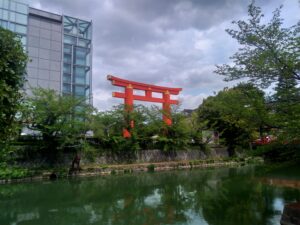
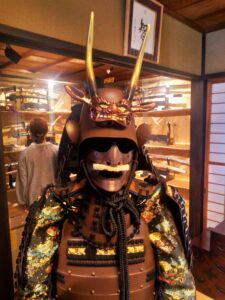
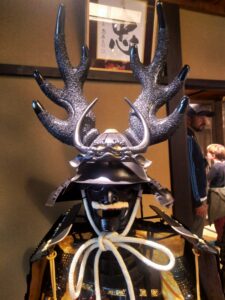
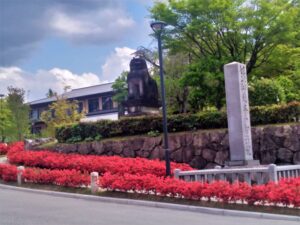
The next day we went to Kennin-ji temple, mainly to see the peonies they have in bloom and because we hadn’t visited for a long time. Kennin-ji was founded in 1202 CE and claims to be the oldest Zen temple in Kyoto. It is located in the Gion area on a large block of land (which would be very valuable indeed) and, as with so many temples, it has been re-built on a number of occasions, including after damage caused during the 13th century Onin wars. The peonies were gorgeous (of course) and the whole temple enclave is very pleasant to walk around. They also had an exhibition of fusuma doors created by Japanese artist Toba Mika, which are covered in dyed fabric showing scenery from Vietnam. They were really beautiful and very peaceful in feeling.
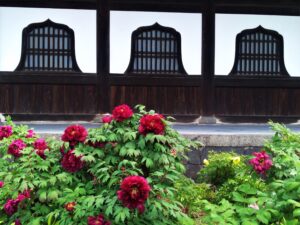
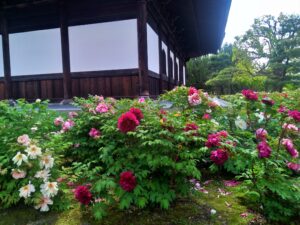
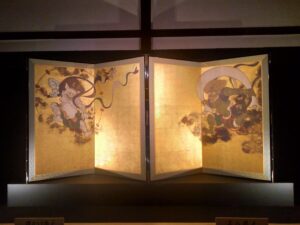
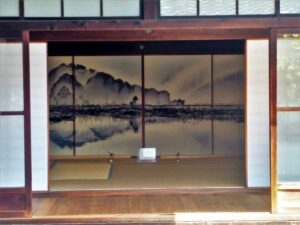
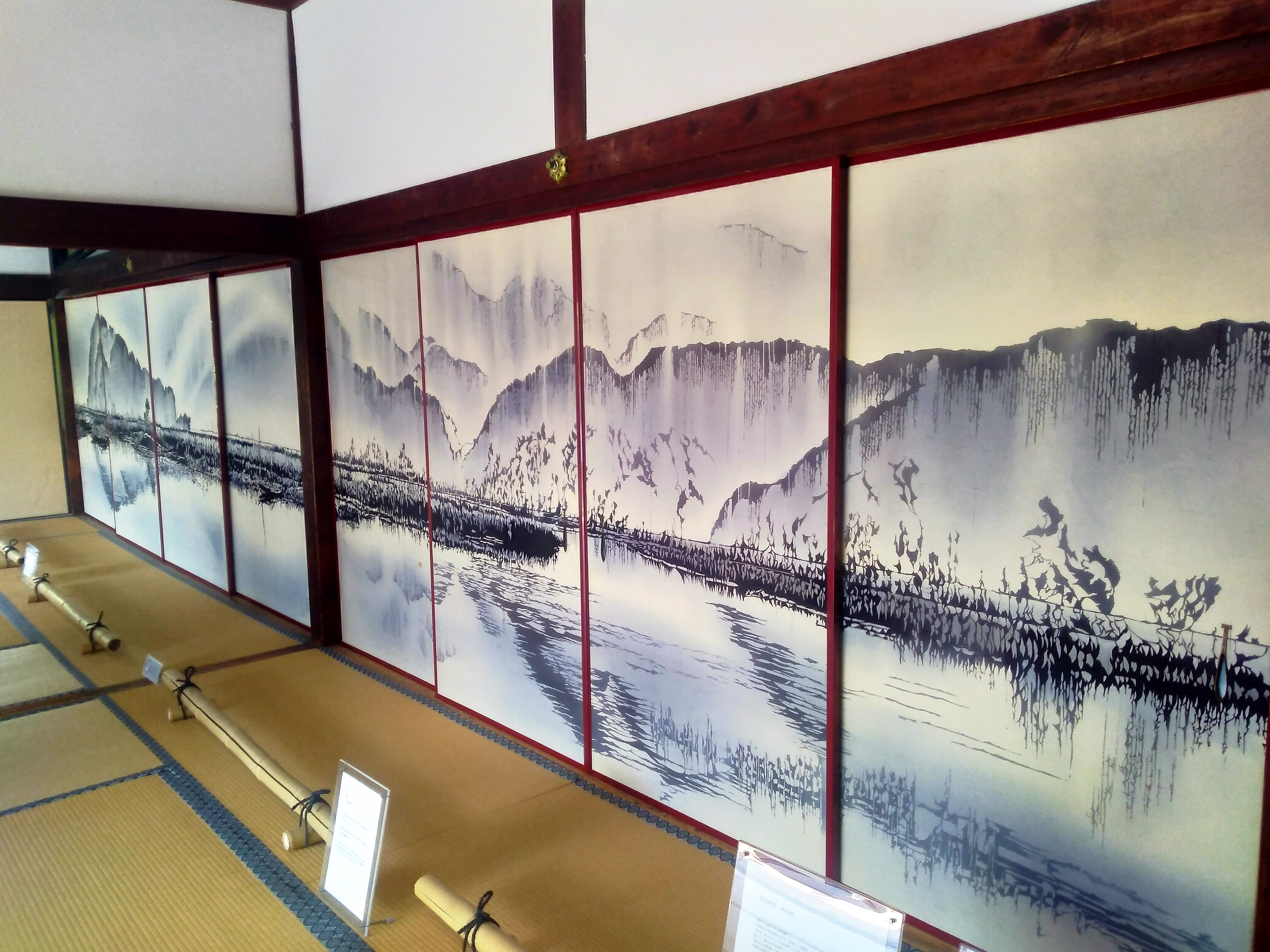
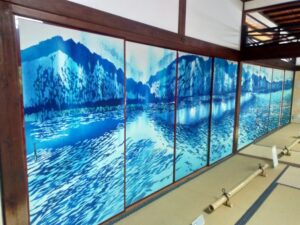
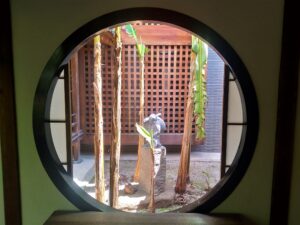
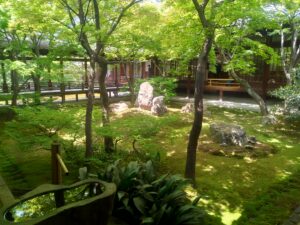
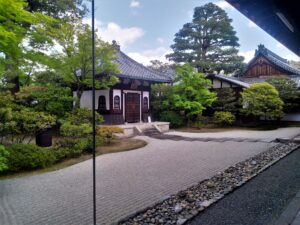
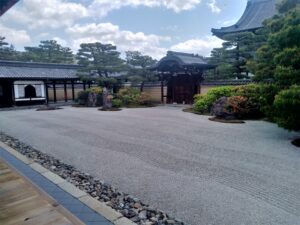
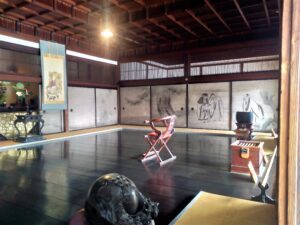
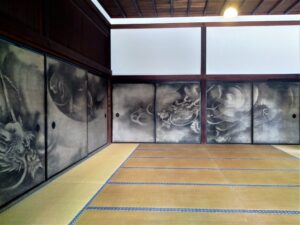
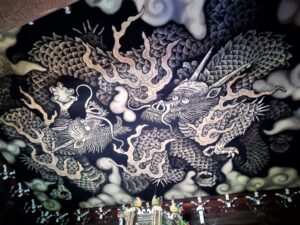
After the others arrived the next day, we took a walk up to the Kiyomizu-dera area, then went to Engine Ramen for dinner (waiting for around 40 minutes in a queue to get in).
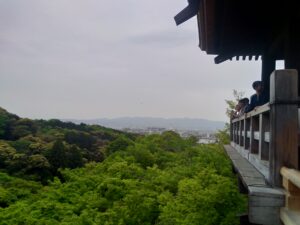
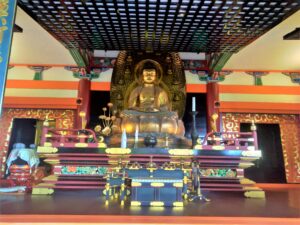
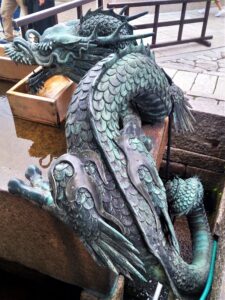
The following day we went to Fushimi Inari, walked up and over the mountain and came back via the forest at the back of the mountain. A fantastic hike, all up, and we even stopped at a small shrine near the mountain to check it out, after an older Japanese woman showed us that the gate into the lower area of the shrine is not locked and hence we could climb down into the lower area. It turned out to be an amazing space, with a created waterfall, that could be used for shugendou purposes. Shugendou literally means “the path of training and testing” or “the way to spiritual power through discipline”, and the practitioners undertake trials such as standing under a waterfall dressed only in a loincloth while chanting (not sure if women partake in these trials). Freezing cold…
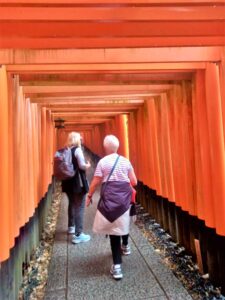
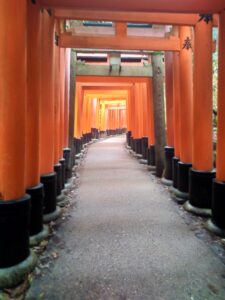
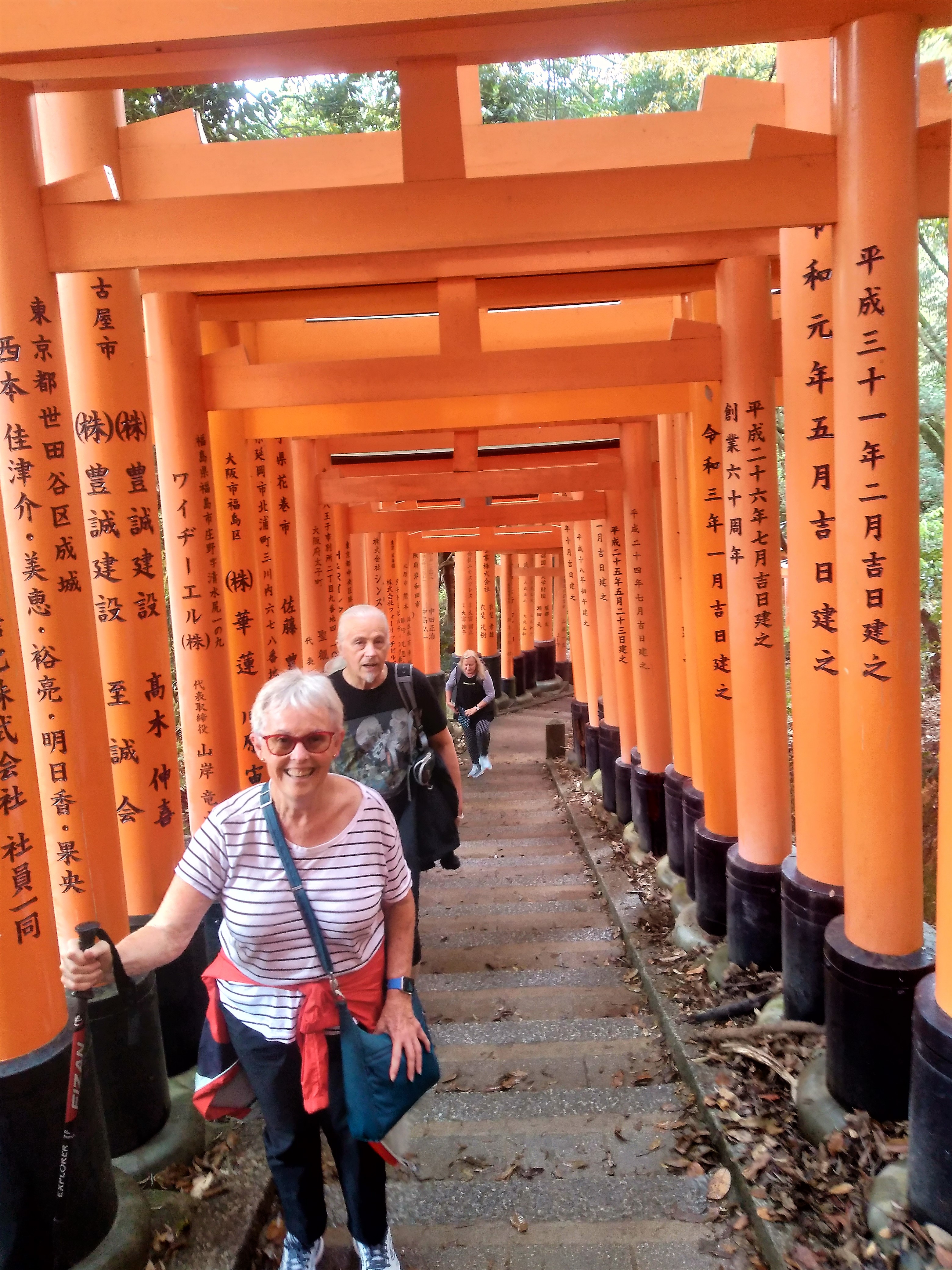
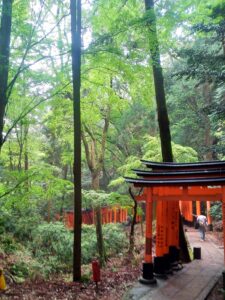
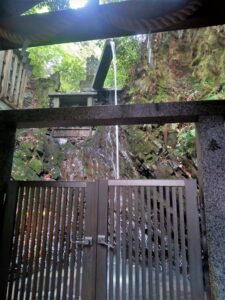
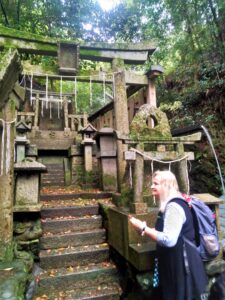
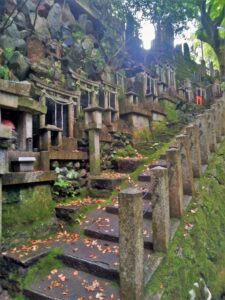
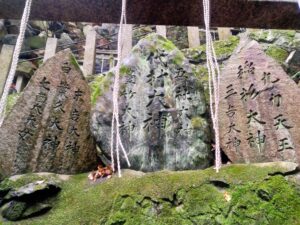
The last two days were spent visiting the Kyoto Botanical Gardens and the Toji Market, which was very large and very crowded but a great place to look for antiques and local handcrafts.
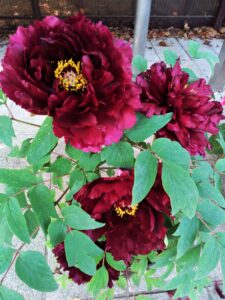
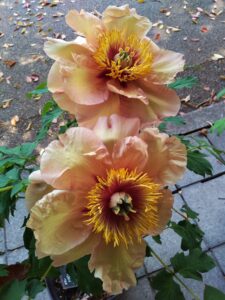
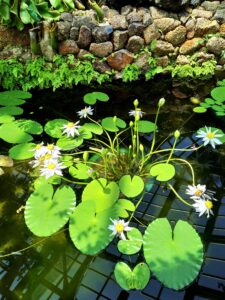
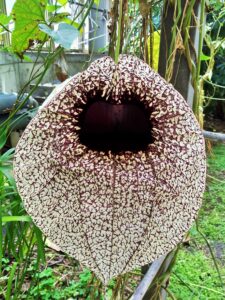
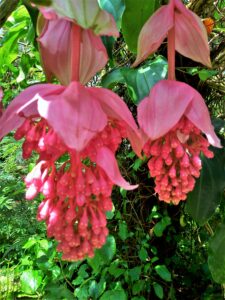
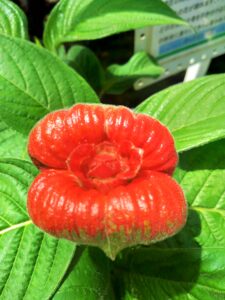
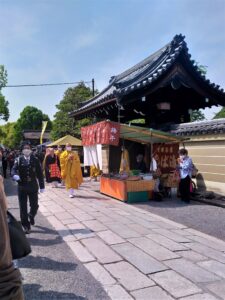
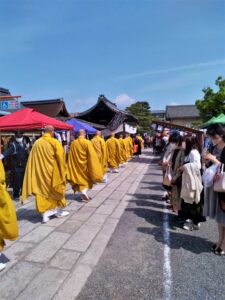
We were all asked to step back off the path, then this procession came through (the really important monk is the one in purple)
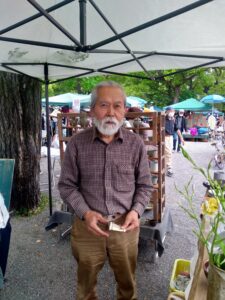
I bought a lovely vase from this man, who is the maker
After visiting the gardens, we also took our friends to see something I had always been curious about, but hadn’t got around to doing – visiting a temple where the ceiling has been made from old floorboards from Toyotomi Hideyoshi’s castle, Fushimi Castle also known as Momoyama Castle. The temple we went to visit, Genko-an, is close to the gardens and seemed to be an interesting place other than just for the ceiling.
The reason these boards were taken from the castle is that a very bloody battle had been fought there in 1600 and the floorboards had become deeply stained with the blood of the samurai and soldiers who had died there. There seem to be many different versions of what exactly happened at the castle, how many men died there and why the floorboards ended up as ceiling boards, but they are known as chitenjo (literally blood ceiling, although the Genko-an website in English calls theirs the crimson ceiling).
The temple itself isn’t overly large, but it is very picturesque. There is a lovely garden at the back of the temple, and it can be seen from the main hall through two unusual windows which are side-by-side, One is round and the other square. These are known as the “satori no mado” and “mayoi no mado” respectively. “Satori no mado” or Window of Realisation (satori is a Japanese Buddhist term for awakening) is round, which is meant to symbolise Zen maturity, completeness and enlightenment, while “mayoi no mado” or Window of Delusion (mayoi is a Japanese Buddhist term for inability to reach enlightenment) is square, and meant to symbolise confusion, ignorance, and immaturity, or the life of samsara, ie a life of human suffering.
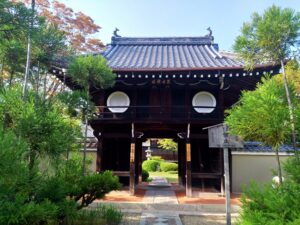
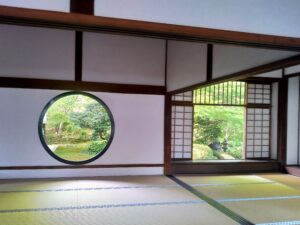
Interestingly, above these windows (and indeed the whole ceiling of the main hall) are the stained floorboards. There were at least three clear footprints on the ceiling, along with one handprint and some other unusual shapes (one looked somewhat like the side of a face) that I saw, but what really shook me was the gradual realisation that all of the boards were stained – it was a fairly large hall and hence quite a large expanse of ceiling. After that, I stopped looking. At the time I didn’t know that there were three other temples which had also been the recipients of the floorboards, so I have to assume that the number of men who died was quite a bit larger than the ten that one website claims.
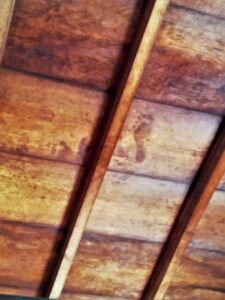
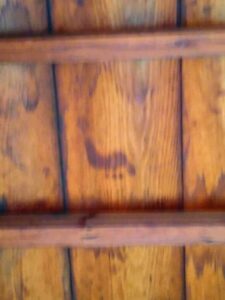
One thing I didn’t mention above; as we were making our way home after our walk around Fushimi Inari, we came up to a T-junction in the backstreets near our home where the minor road approaching the larger road has a fairly steep downward slope. I was at the front of the four of us (Craig was at home waiting for a check-in), and noticed a small but extremely overloaded truck (carrying large beams of wood) approaching the corner at what was clearly too high speed. I ran as far off the road as I could and I think I called out “look out” or something like that, as the truck came towards the corner. As it rounded the corner it swerved over to our side of the road and ended up on two wheels (I thought I was done for…and likely the others too), but somehow he dragged it back but then it swerved to the other side of the road and ended up on two wheels. As we all spun to watch it, I thought it was gone for sure this time. Unbelievably he managed to drag it back, only for the same thing to happen again, although this time it wasn’t as extreme and the next time it thudded down on all four wheels, just in time to take a curve in the road. Adrenalin! We couldn’t believe no-one was hurt. Thankfully there were no other cars nearby, especially coming around that curve in the opposite direction, as it is a blind curve and they wouldn’t have know until it was too late.
In the next episode: visitors arrive from Australia!!
Cheers!
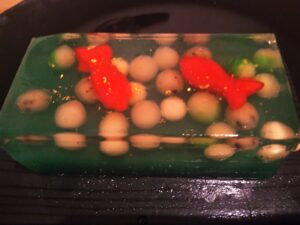
Dessert! Made with beans and agar jelly
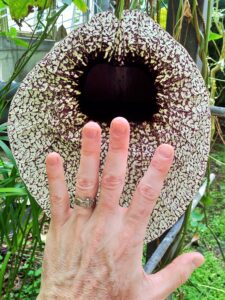
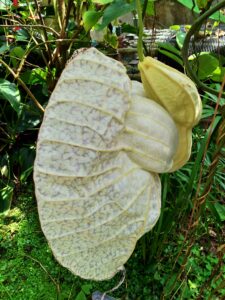
The weird flower from above, with Craig’s hand for size comparison and the side view
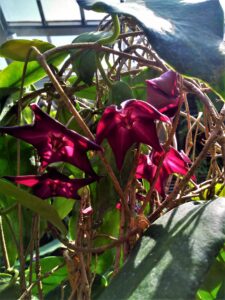

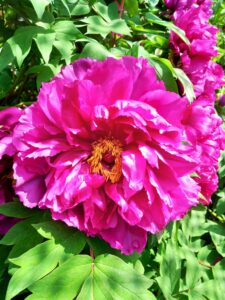
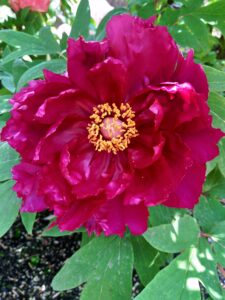
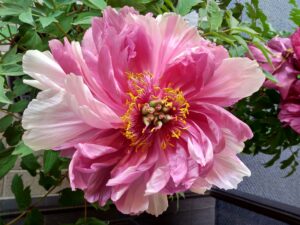
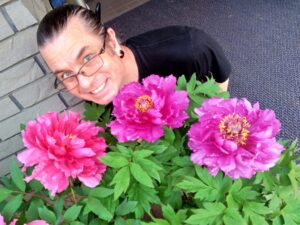 Petal!!!
Petal!!!
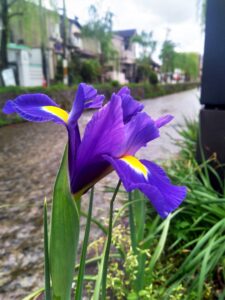
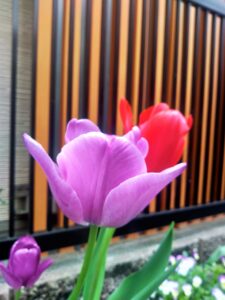
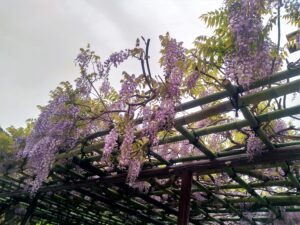
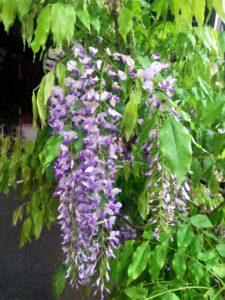
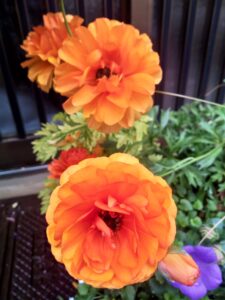
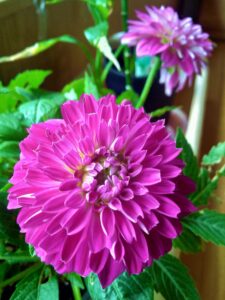
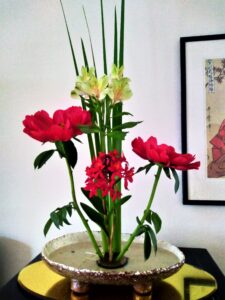
...and speaking of flowers, some of my arrangements, and including my new vase below
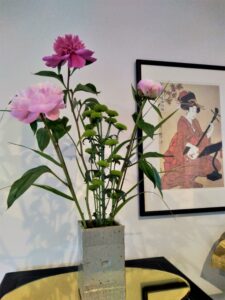
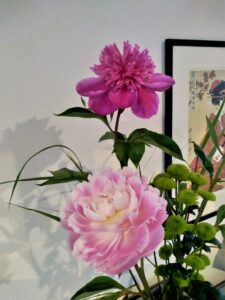
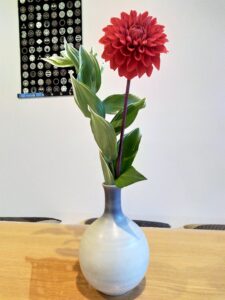
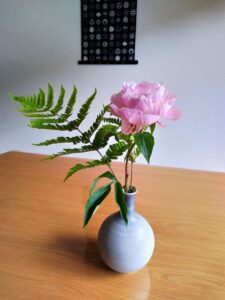
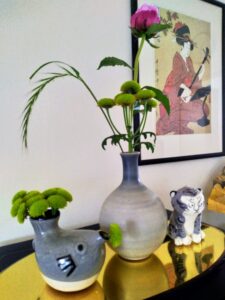 A bit of whimsy…
A bit of whimsy…
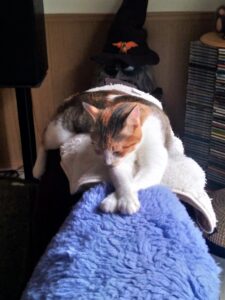 Zara dreaming of Swan Lake
Zara dreaming of Swan Lake

Mum and the kids